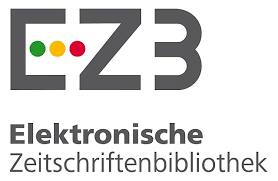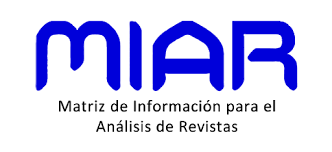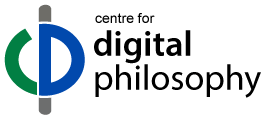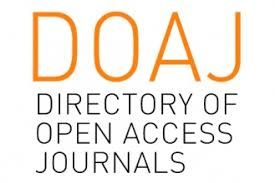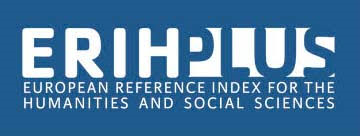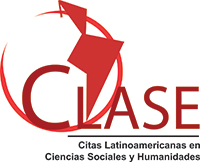Omnisciência e ignorância
DOI:
https://doi.org/10.15448/1984-6746.2021.1.41050Palavras-chave:
Epistemologia, Deus, Ignorância, Onisciência, Filosofia da ReligiãoResumo
A onisciência de Deus gera certos enigmas, e não menos a respeito de como tal onisciência é compatível com o livre arbítrio humano. Uma opção a este respeito é impor limitações ao escopo do conhecimento de Deus, mas isso levanta a questão adicional de como tais limitações podem ser compatíveis com a natureza de Deus como um ser perfeito. Eu ofereço uma nova maneira de abordar essas questões, que apela para o que eu afirmo ser uma distinção motivada de forma independente entre falta de conhecimento e ser ignorante. Em particular, afirma-se que a onisciência de Deus é melhor entendida não como um conhecimento completo de todas as verdades, mas sim como um tipo de não conhecimento deliberado (de modo que o não conhecimento não indica qualquer carência cognitiva da parte de Deus) que exclui ignorância. Deus pode não saber todas as verdades, mas isso não é devido a qualquer carência cognitiva, e certamente não há nenhuma verdade sobre a qual ele seja ignorante.
Downloads
Referências
ALSTON, W. P. Does God Have Beliefs? Religious Studies, [S. I.], n. 22, p. 287-306,1986. DOI: https://doi.org/10.1017/S0034412500018333
CRAIG, W. L. Divine Foreknowledge and Human Freedom: The Coherence of Theism: Divine Omniscience. Leiden: Brill, 1991. DOI: https://doi.org/10.1163/9789004246683
DENICOLA, D. R. Understanding Ignorance: The Surprising Impact of What We Don’t Know. Cambridge, MA: MIT Press, 2018. DOI: https://doi.org/10.7551/mitpress/11086.001.0001
EL KASSAR, N. ‘What Ignorance Really Is: Examining the Foundations of Epistemology of Ignorance’. Social Epistemology, [S. I.], n. 32, p. 300-310, 2018. DOI: https://doi.org/10.1080/02691728.2018.1518498
KASSIN, S. M.; SOMMERS, S. R. Inadmissible Testimony, Instructions to Disregard, and the Jury: Substantive Versus Procedural Considerations. Personality and Social Psychology Bulletin, [S. I.], n. 23, p. 1046-1054, 1997. DOI: https://doi.org/10.1177/01461672972310005
GEACH, P. T. Providence and Evil. Cambridge: Cambridge University Press, 1977.
GOLDMAN, A.; OLSSON, E. Reliabilism and the Value of Knowledge. In: HADDOCK, A.; MILLAR, A.; PRITCHARD, D. H. (ed.). Epistemic Value. Oxford: Oxford University Press, 2009. p. 19-41. DOI: https://doi.org/10.1093/acprof:oso/9780199231188.003.0002
GRECO, J. Achieving Knowledge. Cambridge: Cambridge University Press, 2009.
HASKER, W. Yes, God Has Beliefs. Religious Studies, [S. I.], n. 24, p. 385-394, 1988. DOI: https://doi.org/10.1017/S0034412500019442
HASKER, W. God, Time, and Knowledge. Ithaca, NY: Cornell University Press, 1989.
HASKER, W. Providence, Evil and the Openness of God. London: Routledge. 2004.
HOFFMAN, J.; ROSENKRANTZ, G. S. The Divine Attributes. Oxford: Blackwell, 2002 DOI: https://doi.org/10.1002/9780470693438
KVANVIG, J. L. The Possibility of an All-Knowing God. London: Palgrave Macmillan, 1986. DOI: https://doi.org/10.1007/978-1-349-18437-8
LANGTRY, B. God, the Best, and Evil. Oxford: Oxford University Press, 2008. DOI: https://doi.org/10.1093/acprof:oso/9780199238798.001.0001
LE MORVAN, P. Knowledge, Ignorance and True Belief. Theoria, [S. I.], n. 77, p. 32-41, 2011a. DOI: https://doi.org/10.1111/j.1755-2567.2010.01083.x
LE MORVAN, P. On Ignorance: A Reply to Peels. Philosophia, [S. I.], n.39, p. 335-344, 2011b. DOI: https://doi.org/10.1007/s11406-010-9292-3
LE MORVAN, P. On Ignorance: A Vindication of the Standard View. Philosophia, [S. I.], n. 40, p. 379-393. 2012. DOI: https://doi.org/10.1007/s11406-011-9330-9
LE MORVAN, P. Why the Standard Conception of Ignorance Prevails. Philosophia, [S. I.], n. 41, p. 239-256, 2013). DOI: https://doi.org/10.1007/s11406-013-9417-6
LE MORVAN, P.; PEELS, R. (2016). The Nature of Ignorance: Two Views. In: PEELS, R.; BLAAUW, M. (ed.). The Epistemic Dimensions of Ignorance Cambridge: Cambridge University Press. p. 12-32. DOI: https://doi.org/10.1017/9780511820076.002
MAVERODES, G. I. Omniscience. In: C. Taliaferro, DRAPER, P.; QUINN, Philip L. (ed.). A Companion to Philosophy of Religion. 2. ed. Oxford: Blackwell, 2010. p. 251-258.
MAWSON, T. J. The Divine Attributes. Cambridge: Cambridge University Press, 2019. DOI: https://doi.org/10.1017/9781108598101
NAGASAWA, Y. Maximal God: A New Defense of Perfect Being Theology. Oxford: Oxford University Press, 2017. DOI: https://doi.org/10.1093/oso/9780198758686.001.0001
NOTTELMANN, N. Ignorance. In: AUDI, R. (ed.). Cambridge Dictionary of Philosophy. 3. ed. Cambridge: Cambridge University Press, 2015. p. 497-498.
PEELS, R. What is Ignorance? Philosophia, [S. I.], n. 38, p. 57-67, 2010. DOI: https://doi.org/10.1007/s11406-009-9202-8
PEELS, R. Ignorance Is Lack of True Belief: A Rejoinder to Le Morvan. Philosophia, [S. I.], n. 39, 344-355, 2011. DOI: https://doi.org/10.1007/s11406-010-9301-6
PEELS, R. The New View on Ignorance Undefeated. Philosophia, [S. I.], n. 40, p. 741-750, 2012. DOI: https://doi.org/10.1007/s11406-012-9364-7
PRITCHARD, D. H. Anti-Luck Virtue Epistemology. Journal of Philosophy, [S. I.], n. 109, p. 247-279, 2012. DOI: https://doi.org/10.5840/jphil201210939
PEELS, R. Epistemic Angst: Radical Skepticism and the Groundlessness of Our Believing. Princeton, NJ: Princeton University Press, 2015.
PEELS, R. (2021). ‘Ignorance and Inquiry’, American Philosophical Quarterly 58, 111-23. DOI: https://doi.org/10.2307/48613999
SCHÖNBAUMSFELD, G. The Illusion of Doubt. Oxford: Oxford University Press, 2016. DOI: https://doi.org/10.1093/acprof:oso/9780198783947.001.0001
SOSA, E. A Virtue Epistemology: Apt Belief and Reflective Knowledge. Oxford: Oxford University Press, 2007. DOI: https://doi.org/10.1093/acprof:oso/9780199297023.003.0002
SWINBURNE, R. The Coherence of Theism. 2. ed. Oxford: Oxford University Press, 2016. DOI: https://doi.org/10.1093/acprof:oso/9780198779698.001.0001
VAN INWAGEN, P. What Does an Omniscient Being Know about the Future? Oxford Studies in Philosophy of Religion, [S. I.], n. 1, p. 216-230, 2008.
VAN WOUDENBERG, R. Ignorance and Force: Two Excusing Conditions for False Beliefs. American Philosophical Quarterly, [S. I.], n. 46, p. 373-386, 2009.
WAINWRIGHT, W. J. Omnipotence, Omniscience, and Omnipresence. In: TALIAFERRO, C.; MEISTER, C. (ed.). Cambridge Companion to Christian Philosophical Theology. Cambridge: Cambridge University Press, 2010. p. 46-65. DOI: https://doi.org/10.1017/CCOL9780521514330.004
WIERENGA, E. Omniscience. In: FLINT, T. P.; REA, M. C. (ed.). Oxford Handbook of Philosophical Theology. Oxford: Oxford University Press, 2009. p. 129-144. DOI: https://doi.org/10.1093/oxfordhb/9780199596539.013.0007
WIERENGA, E. Omniscience. In: ZALTA, E. Stanford Enclyclopedia of Philosophy. [2021]. Available in: https://plato.stanford.edu/entries/omniscience. Acessed on: 4 jul. 2021.
WITTGENSTEIN, L. On Certainty. Edited by G. E. M. Anscombe; G. H. von Wright;
Translated by D. Paul; G. E. M. Anscombe. Oxford: Blackwell, 1969.
ZAGZEBSKI, L. T. The Dilemma of Freedom and Foreknowledge. New York: Oxford University Press, 1991.
ZAGZEBSKI, L. T. Omnisubjectivity. Oxford Studies in Philosophy of Religion, [S. I.], n. 1, p. 231-247, 2008.
ZAGZEBSKI, L. T. Foreknowledge and Human Freedom. In: TALIAFERRO, C.; DRAPER, P.; QUINN, Philip L. (ed.). A Companion to Philosophy of Religion. 2. ed. Oxford: Blackwell, 2010. p. 474-482. DOI: https://doi.org/10.1002/9781444320152.ch56
ZAGZEBSKI, L. T. Omniscience. In: MEISTER, C.; COPANS, P. (ed.). Routledge Companion to Philosophy of Religion. 2. ed. London: Routledge. 2013a. p. 309-319.
ZAGZEBSKI, L. T. Omnisubjectivity: A Defense of a Divine Attribute (Aquinas Lecture 2013). Milwaukee, WI: Marquette University Press, 2013b.
ZAGZEBSKI, L. T. Omnisubjectivity: Why It Is a Divine Attribute. Nova et Vetera, [S. I.], n. 14, p. 435-450, 2016. DOI: https://doi.org/10.1353/nov.2016.0030
ZIMMERMAN, M. J. Living with Uncertainty: The Moral Significance of Ignorance. Cambridge: Cambridge University Press, 2008. DOI: https://doi.org/10.1017/CBO9780511481505
Downloads
Publicado
Como Citar
Edição
Seção
Licença
Copyright (c) 2021 Veritas (Porto Alegre)

Este trabalho está licenciado sob uma licença Creative Commons Attribution 4.0 International License.





